
Guests
- Malik Yakinichairman of the Detroit Black Community Food Security Network
In Detroit, demolition crews are planning to tear down 10,000 residential buildings over the next four years that the city has deemed dangerous. But as old structures are coming down, the city is redefining itself in other ways. An estimated 20 to 30 percent of the city’s lots are vacant, and there is a growing urban agriculture movement that community groups are using to reclaim the city. Malik Yakini, chairman of the Detroit Black Community Food Security Network, gives us a tour of D-Town Farm, one of the biggest urban farms in Detroit. [includes rush transcript]
Transcript
AMY GOODMAN: We are on the road in Detroit. Demolition crews here are planning to tear down 10,000 residential buildings over the next four years that the city has deemed dangerous. But as old structures are coming down, the city is redefining itself in other ways. An estimated 20 to 30 percent of the city’s lots are vacant. There’s a growing urban agriculture movement that community groups are using to reclaim Detroit. Several farms currently exist within the city, and there are hundreds more community, school and family gardens.
D-Town Farm is one of the biggest urban farms in Detroit. It was founded by the Detroit Black Community Food Security Network, a coalition of organizations and individuals working to build food security in Detroit’s black community. Malik Yakini is the chair of the group. He gave us a tour of D-Town Farm.
MALIK YAKINI: Welcome to D-Town Farm. D-Town Farm is a community self-determination project operated by the Detroit Black Community Food Security Network. And this is a two-acre site inside of a city-owned park. This is inside of Rouge Park, which is the largest park in the city of Detroit. And so, we have obtained a ten-year license agreement to create a model organic farm here in the city of Detroit. And so, what we’re doing is we’re showing how unused and underutilized land in the city of Detroit can be put to productive use both to create greater access to fresh produce, also to mobilize people to work on their own behalf, and also to, again, demonstrate to people how land in the city — and we have an abundance of land which is either not being used or being underutilized — how that land can be put to productive use.
We have — so far, we’ve got two types of kale planted: curly leaf kale and what we call dinosaur kale, or lacinato kale. We have onions planted. We have chives planted. We’ve got yellow squash planted. We’ve got tomatoes. We’ve got lettuce. We’ve got watermelon, peas and a few other things. Ultimately, we’ll have thirty-seven different things planted.
Community food security is a concept that basically means that a community has adequate amounts of culturally appropriate food that’s easily acceptable by people. And, you know, we like to add on it’s grown by sustainable means. So, when a community is in that condition, we consider it to be food secure. If any of those elements are missing, we consider the community to be food insecure.
Detroit has been designated as a food desert by Mari Gallagher, who came here and did research in 2007. And she defined a food desert as a place where residents have to travel twice as far to get to a major grocer as they do to get to what she calls a fringe food location, and what we call in Detroit a party store. So we have this real serious problem in Detroit with the lack of access to fresh and healthy produce, which has tremendous health implications. So we have lots of problems in Detroit with obesity, both childhood and adult obesity, high blood pressure, diabetes and other diseases which are controllable by diet.
There used to be, when I was growing up in Detroit, at least six or seven major supermarkets, national supermarkets, in the city. As of 2007, when Farmer Jack left the city, there are no major chains in the city. So there are smaller markets, but often the quality of the food sold in the city of Detroit is a diminished quality when compared to the quality of the food that’s sold in the ring of suburbs surrounding Detroit, where black self-determination is, frankly.
And Detroit is a at least 85 or perhaps 90 percent African American city, so any plan being proposed in relationship to urban agriculture in Detroit must benefit the majority population. We’re not interested in plans that come in where the corporate sector comes in and only uses the majority population as workers. We’re concerned about control and ownership. And so, this is an example of an agricultural project which is controlled by African Americans and where we’re able to control the revenue generated from this farm, and we want to model not only the growing techniques, but model the kind of social and political and economic dynamics that we think are appropriate for a city like Detroit.
Part of the challenge we have with organizing African Americans for this work is that many of our people associate this work with enriching somebody else, associate it with slavery or sharecropping, both of which enriched whites through our labor. And part of what we’re doing is reframing agriculture for African Americans, so that we can again see it as an act of self-determination and self-empowerment, as opposed to an act where our labor is exploited to enrich someone else.
What I hope to see is a ramped-up or an increased urban agriculture movement in the city of Detroit. I hope to see more understanding of the value of this movement by the political leadership within the city. But most importantly, we think, is not so much even the political leadership, but what’s most important is the people being mobilized and the people’s consciousness being raised, so that they see this as being a way to work on their own behalf. Once people are mobilized and see that they can begin to work for their own benefit, then that’s what holds politicians accountable. If people aren’t mobilized and able to speak on their own behalf and act on their own behalf, then politicians come in and do whatever they want to do. So what’s most important always is the people being conscious and mobilized, and that’s what — that’s what really helps to shape reality.
AMY GOODMAN: Malik Yakini is the chair of the Detroit Black Community Food Security Network. Special thanks to Democracy Now!’s Nicole Salazar.

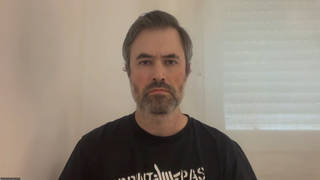
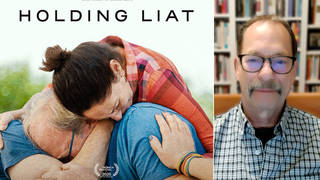
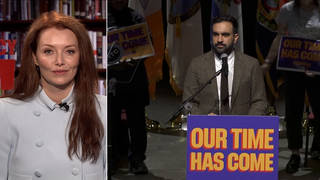
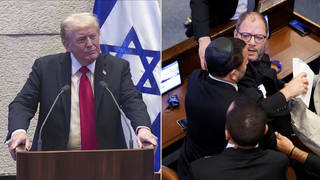





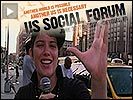

Media Options